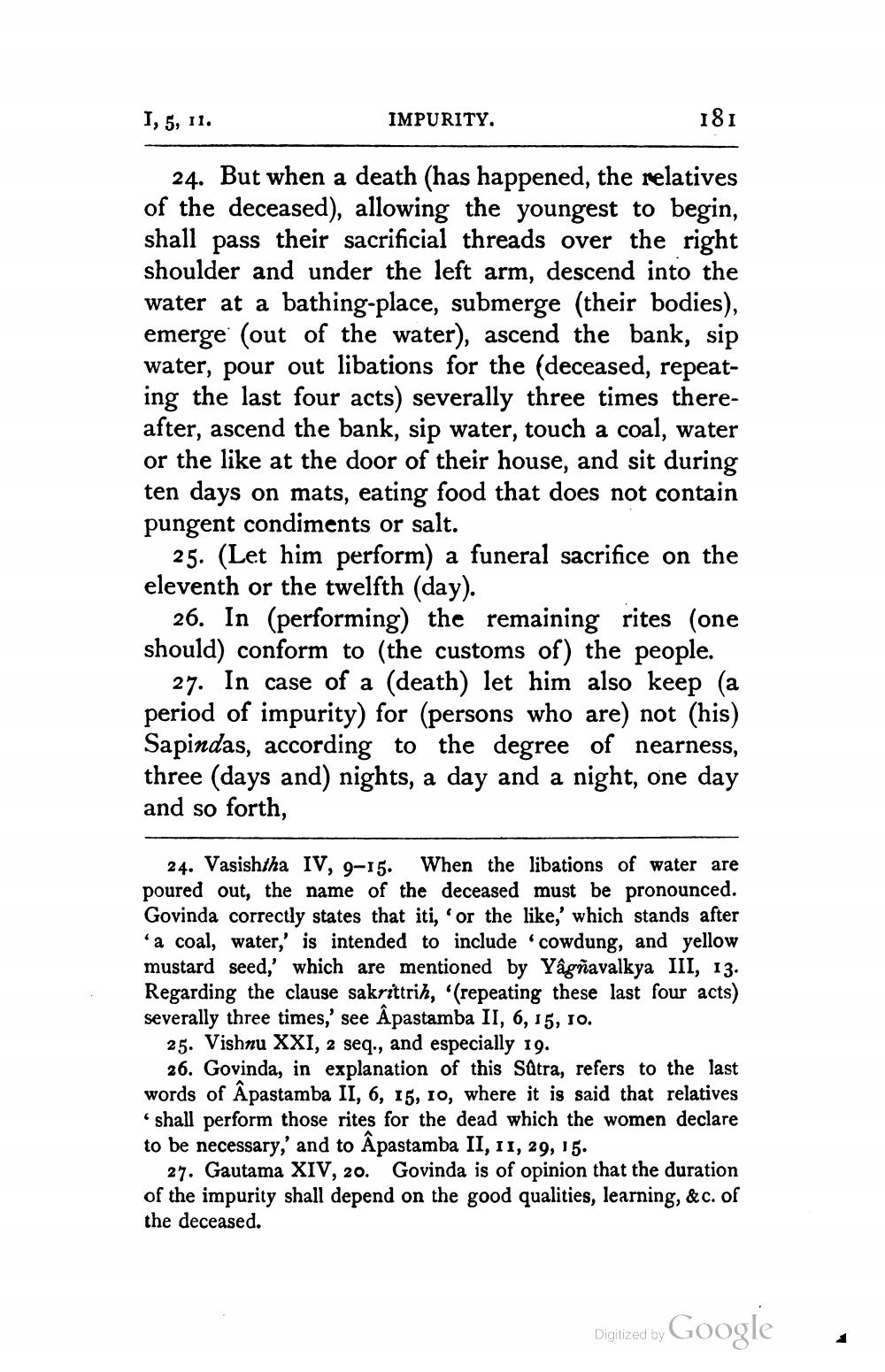________________
I, 5, 11.
IMPURITY.
181
24. But when a death (has happened, the relatives of the deceased), allowing the youngest to begin, shall pass their sacrificial threads over the right shoulder and under the left arm, descend into the water at a bathing-place, submerge (their bodies), emerge (out of the water), ascend the bank, sip water, pour out libations for the (deceased, repeating the last four acts) severally three times thereafter, ascend the bank, sip water, touch a coal, water or the like at the door of their house, and sit during ten days on mats, eating food that does not contain pungent condiments or salt.
25. (Let him perform) a funeral sacrifice on the eleventh or the twelfth (day).
26. In (performing) the remaining rites (one should) conform to (the customs of) the people.
27. In case of a (death) let him also keep (a period of impurity) for (persons who are) not (his) Sapindas, according to the degree of nearness, three (days and) nights, a day and a night, one day and so forth,
24. Vasishtha IV, 9-15. When the libations of water are poured out, the name of the deceased must be pronounced. Govinda correctly states that iti, or the like,' which stands after
a coal, water,' is intended to include cowdung, and yellow mustard seed,' which are mentioned by Yâgñavalkya III, 13. Regarding the clause sakrittrih, '(repeating these last four acts) severally three times,' see Âpastamba II, 6, 15, 10.
25. Vishnu XXI, 2 seq., and especially 19.
26. Govinda, in explanation of this Satra, refers to the last words of Âpastamba II, 6, 15, 10, where it is said that relatives
shall perform those rites for the dead which the women declare to be necessary, and to Âpastamba II, 11, 29, 15.
27. Gautama XIV, 20. Govinda is of opinion that the duration of the impurity shall depend on the good qualities, learning, &c. of the deceased.
Digitized by Google




